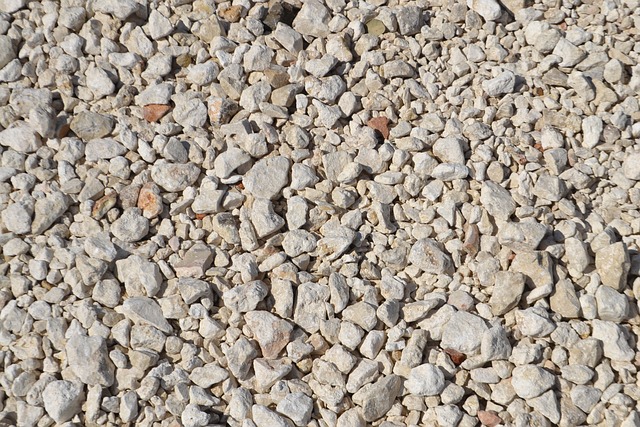When it comes to choosing the right driveway paving material, many homeowners are choosing between crushed concrete and gravel. Which one is cheaper? The answer may surprise you! Let’s take a closer look at the cost of gravel vs. crushed concrete for driveway and see if either of these paving materials is a better choice for your house. If you are interested in recycling old construction materials at home, please see our portable concrete crusher – the best quality equipment is guaranteed.
What is crushed concrete used for?
Crushed concrete is commonly used in construction projects. It is a versatile material that can be applied for various purposes, including walkways, driveways, parking lots, and more.
One of the main reasons crushed concrete is such a popular choice for construction projects is its versatility. Unlike other materials (such as asphalt or gravel), crushed concrete can be easily adapted to any desired layout or color scheme. Additionally, it’s extremely durable and resistant to weathering and erosion. This makes it perfect for areas of heavy traffic or exposure to the elements (such as rain or snow).
Other benefits of using crushed concrete in construction include its price tag and emissions profile. Compared to different types of pavement materials, crushed concrete tends to have lower installation costs and energy consumption during operation. Eventually, this pavement has minimal environmental impact because it does not require water treatment before being deployed onto roads.
Primary applications of gravel
Gravel is a versatile material that can be used for various purposes. Here are just a few:
– Gravel can be used as an environmentally friendly filler in concrete and masonry. This makes it easier to work with, reduces the need for added water, and helps reduce carbon emissions.
– Gravel is also popular for gardens and landscapes because it adds texture, color, and depth to plants and trees. It enhances drainage by helping eliminate pooled water under the surface, which can lead to root rot or other plant diseases.
– Gravel offers thermal insulation properties due to its high porosity levels; this means that it conducts heat well relative to other materials. This makes gravel a good choice when building home heating systems using radiant energy or hot water pipes.
The main benefit of using gravel over other materials is its durability. Gravel will not break down or deteriorate over time as concrete or asphalt will. This makes it a preferable choice for areas where foot traffic is heavy (such as downtowns) or where the ground tends to freeze during the winter.
Another advantage of using gravel is its eco-friendly nature. Unlike other construction materials that require extensive processing before they are usable, gravel can be sourced directly from the earth without additional manufacturing steps. This reduces environmental impact overall.
What gravel should I use for my driveway?
Gravel is an important part of any driveway, and the type you choose can significantly affect how well your drive functions. Gravel comes in many shapes and sizes, but two types are particularly popular today: quarry gravel and riverbed gravel.
Quarry gravel is made from crushed stone, or rock sorted into small pieces by size. This type of gravel is the most common because it has no round edges, which makes it easier to seal against moisture and defects. Quarry gravel also locks together better than other types of gravel, making it less likely to shift during heavy traffic.
Riverbed gravel is similar to quarry grits in shape, but its smaller pieces have been collected while they were still wet from the stream or river they came from. This gives riverbed grits their earthly look and feel (sometimes called “soil” stones). Riverbed grits aren’t as stable as quarry grates when installed on a driveway because they tend to be bumpy; however, they’re often preferred for their natural appearance alone.
Crushed concrete vs. gravel driveway
There are a few important things to consider when choosing between crushed concrete and gravel driveway. First and foremost, the type of driveway you choose will depend on your needs and preferences.
Crushed concrete is probably the better option if you need a basic drive for your car because it’s cheaper and more durable than gravel. Concrete is also easier to keep clean since no small stones or debris can get embedded in the surface. On the other hand, gravel may be a better choice if you want something that looks nicer or has a decorative edge. It’s also more expensive than crushed concrete but relatively simple to install (you just need to pour it down).
Ultimately, whichever route you decide to take depends on what suits your individual needs best. Be sure to consult an experienced contractor who can help guide you through the decision process.
Price of crushed concrete vs. gravel
Crushed concrete and gravel are two types of construction materials that can be used to make a variety of surfaces. Which one is the most cost-effective?
When it comes to price, crushed concrete is usually cheaper than gravel. This is because crushed concrete needs less processing (compared to grinding and screening) before it can be used in construction. Additionally, asphalt may be added during manufacturing to stabilize the mix, increasing costs further.
Regarding durability, both types of materials have advantages and disadvantages. Crushed concrete is often considered more durable due to its structural integrity and ability to withstand weather conditions better than gravel. However, gravel requires less labor when it comes to repairs or alterations since smaller pieces can easily be replaced with a shovel instead of using a tractor loader for truck loaders like crushed cement.
Ultimately, your decision depends on your needs and preferences as a builder or homeowner. But using these basics as a guide can help make decisions easier down the road.
